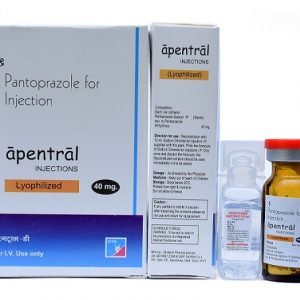Description
C18 STEROID WITH ANDROGENIC AND ANABOLIC PROPERTIES. IT IS GENERALLY PREPARED FROM ALKYL ETHERS OF ESTRADIOL TO RESEMBLE TESTOSTERONE BUT LESS ONE CARBON AT THE 19 POSITION.
THIS COMPOUND BELONGS TO THE CLASS OF ORGANIC COMPOUNDS KNOWN AS STEROID ESTERS. THESE ARE COMPOUNDS CONTAINING A STEROID MOIETY WHICH BEARS A CARBOXYLIC ACID ESTER GROUP.
PHARMACOLOGY
PHARMACODYNAMICS:
Nandrolone is an anabolic steroid occurring naturally in the human body, albeit in small quantities. Nandrolone increases production and urinary excretion of erythropoietin. It may also have a direct action on bone marrow. Nandrolone binds to the androgen receptor to a greater degree than testosterone, but due to its inability to act on the muscle in ways unmediated by the receptor, has less overall effect on muscle growth. Nandrolone is an androgen receptor agonist. The drug bound to the receptor complexes which allows it to enter the nucleus and bind directly to specific nucleotide sequences of the chromosomal DNA. The areas of binding are called hormone response elements (HREs), and influence transcriptional activity of certain genes, producing the androgen effects.
PHARMACOKINETICS:
- Protein Binding: – 58%
- Metabolism: – Nandrolone is unusual in that unlike most anabolic steroids, it is not broken down into the more reactive DHT by the enzyme 5α-reductase, but rather into a less effective product known as Dihydronandrolone.
INDICATIONS:
- For the treatment of refractory deficient red cell production anemias, breast carcinoma.
- Hereditary angioedema, antithrombin III deficiency, fibrinogen excess.
- Growth failure and Turner’s syndrome.
- It is also indicated in the prophylaxis of hereditary angioedema.













